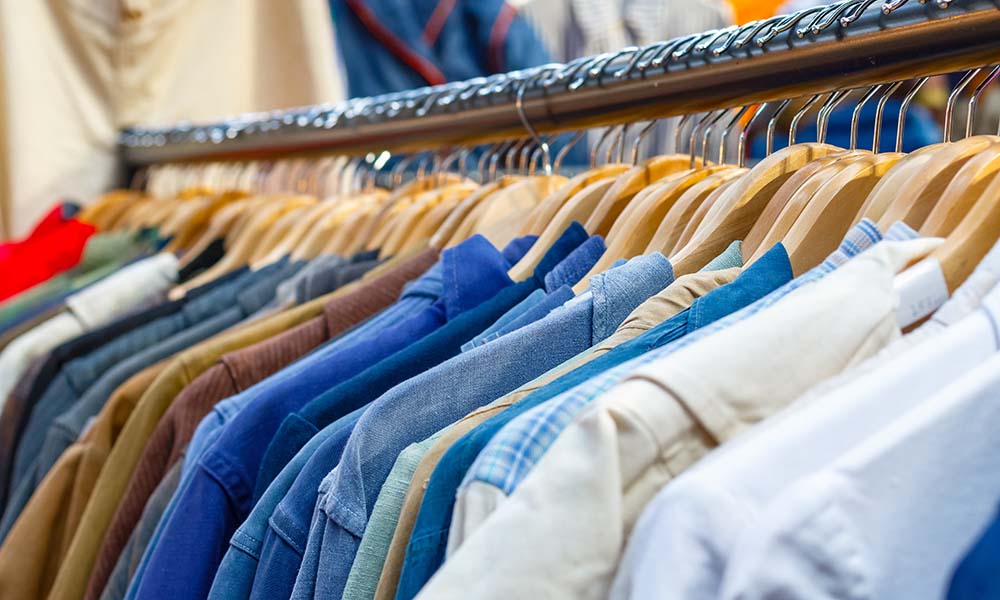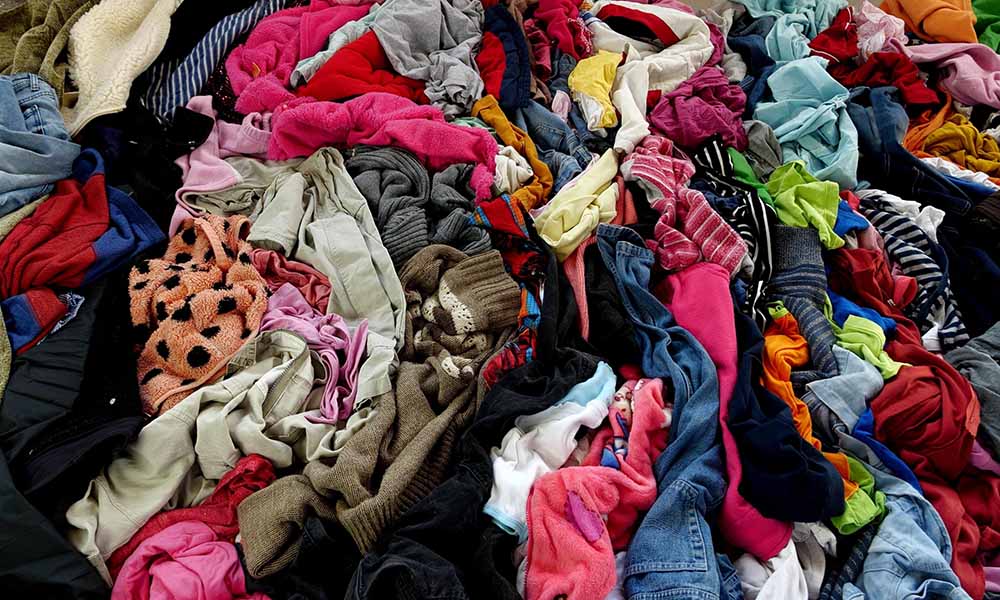
Tips and inspiration
- Buying second-hand clothes can be an incredibly rewarding experience. It allows you to develop your personal style while uncovering unique hidden gems at a fraction of the cost.
- It’s not just charity shops and car boot sales, you can shop second-hand online with apps and websites such as Vinted, Depop, eBay, Oxfam, Shelter and Little Ones Preloved. Search for your favourite brands and set notifications for when new items get uploaded.
- It’s useful to know your measurements and sizes so that you can be sure what you’re buying will be the right fit.
- Avoid clothes made from plastic fibres such as polyester that shed microplastics when washed. Check clothes labels for natural fibres such as cotton, linen, wool and silk, as these will be higher quality items that will last longer.

The big picture
Global clothing consumption is projected to increase by 63% by 2030, which would look like more than an extra 500 billion T-shirts.
Source:
UK Parliament Fixing Fashion Report
Image © RymanStudio/ Shutterstock
Why is this action beneficial?
Save money
Second-hand clothes are significantly cheaper than new items. You can find brand-name and high-quality garments without the usual price tag.
Reduce waste
Opting for second-hand extends the lifecycle of clothing, reducing the amount of clothes that end up in landfill. You can also refresh your wardrobe by selling or donating clothes you no longer wear rather than throwing them out.
Reduce emissions
The process of making new clothes and the fashion industry’s long supply chains use a lot of energy, which in turn produces greenhouse gas emissions. When you buy existing items, you avoid contributing to these emissions.
Advocate for others
Fast fashion often exploits underpaid workers, mostly women in the Global South, working in poor conditions. Buying second-hand items means you reduce demand on these unethical supply chains.
Reduce pollution
Mass clothing production involves large amounts of toxic chemicals, dyes and microplastics that often end up in waterways. By buying second-hand, you help reduce the demand for new production and reduce associated water pollution.
Support local and independent businesses
Many second-hand shops are small businesses or nonprofit organisations. Shopping there rather than fast fashion stores helps support local economies and, in some cases, charity initiatives.
We’re still developing the Find Your Climate Action tool. Watch this space for updates and share your feedback with us to help improve it.
More ways to get involved
Fixing Our Broken Planet
The Find Your Climate Action tool is part of our Fixing Our Broken Planet programme, which is designed to inspire people to take action to help the planet. The programme also includes a new gallery as well as experiences and events.
Join our community
Sign up to our new monthly Planet Fixers newsletter for tips on living sustainably as well as interesting articles and upcoming events.
Funding
We thank all who have generously contributed to Fixing Our Broken Planet. Learn more about our sponsors and donors.